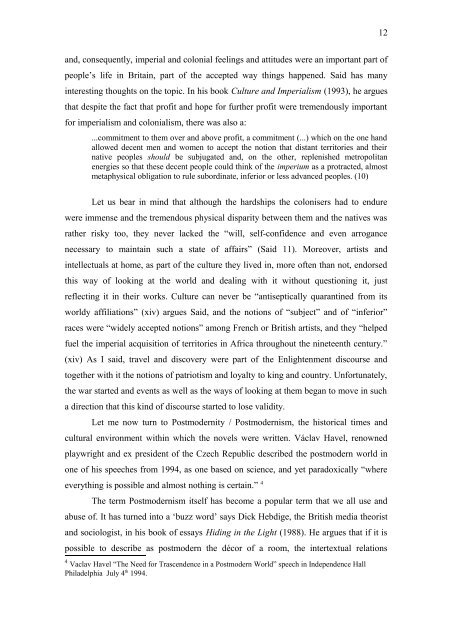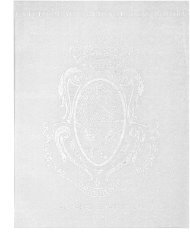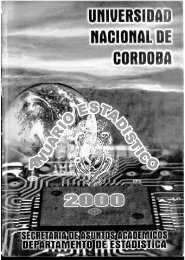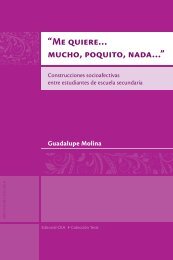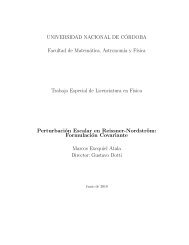Chapter I - RDU - Universidad Nacional de Córdoba
Chapter I - RDU - Universidad Nacional de Córdoba
Chapter I - RDU - Universidad Nacional de Córdoba
Create successful ePaper yourself
Turn your PDF publications into a flip-book with our unique Google optimized e-Paper software.
12and, consequently, imperial and colonial feelings and attitu<strong>de</strong>s were an important part ofpeople’s life in Britain, part of the accepted way things happened. Said has manyinteresting thoughts on the topic. In his book Culture and Imperialism (1993), he arguesthat <strong>de</strong>spite the fact that profit and hope for further profit were tremendously importantfor imperialism and colonialism, there was also a:...commitment to them over and above profit, a commitment (...) which on the one handallowed <strong>de</strong>cent men and women to accept the notion that distant territories and theirnative peoples should be subjugated and, on the other, replenished metropolitanenergies so that these <strong>de</strong>cent people could think of the imperium as a protracted, almostmetaphysical obligation to rule subordinate, inferior or less advanced peoples. (10)Let us bear in mind that although the hardships the colonisers had to endurewere immense and the tremendous physical disparity between them and the natives wasrather risky too, they never lacked the “will, self-confi<strong>de</strong>nce and even arrogancenecessary to maintain such a state of affairs” (Said 11). Moreover, artists andintellectuals at home, as part of the culture they lived in, more often than not, endorsedthis way of looking at the world and <strong>de</strong>aling with it without questioning it, justreflecting it in their works. Culture can never be “antiseptically quarantined from itsworldy affiliations” (xiv) argues Said, and the notions of “subject” and of “inferior”races were “wi<strong>de</strong>ly accepted notions” among French or British artists, and they “helpedfuel the imperial acquisition of territories in Africa throughout the nineteenth century.”(xiv) As I said, travel and discovery were part of the Enlightenment discourse andtogether with it the notions of patriotism and loyalty to king and country. Unfortunately,the war started and events as well as the ways of looking at them began to move in sucha direction that this kind of discourse started to lose validity.Let me now turn to Postmo<strong>de</strong>rnity / Postmo<strong>de</strong>rnism, the historical times andcultural environment within which the novels were written. Václav Havel, renownedplaywright and ex presi<strong>de</strong>nt of the Czech Republic <strong>de</strong>scribed the postmo<strong>de</strong>rn world inone of his speeches from 1994, as one based on science, and yet paradoxically “whereeverything is possible and almost nothing is certain.” 4The term Postmo<strong>de</strong>rnism itself has become a popular term that we all use andabuse of. It has turned into a ‘buzz word’ says Dick Hebdige, the British media theoristand sociologist, in his book of essays Hiding in the Light (1988). He argues that if it ispossible to <strong>de</strong>scribe as postmo<strong>de</strong>rn the décor of a room, the intertextual relations4Vaclav Havel “The Need for Trascen<strong>de</strong>nce in a Postmo<strong>de</strong>rn World” speech in In<strong>de</strong>pen<strong>de</strong>nce HallPhila<strong>de</strong>lphia July 4 th 1994.


